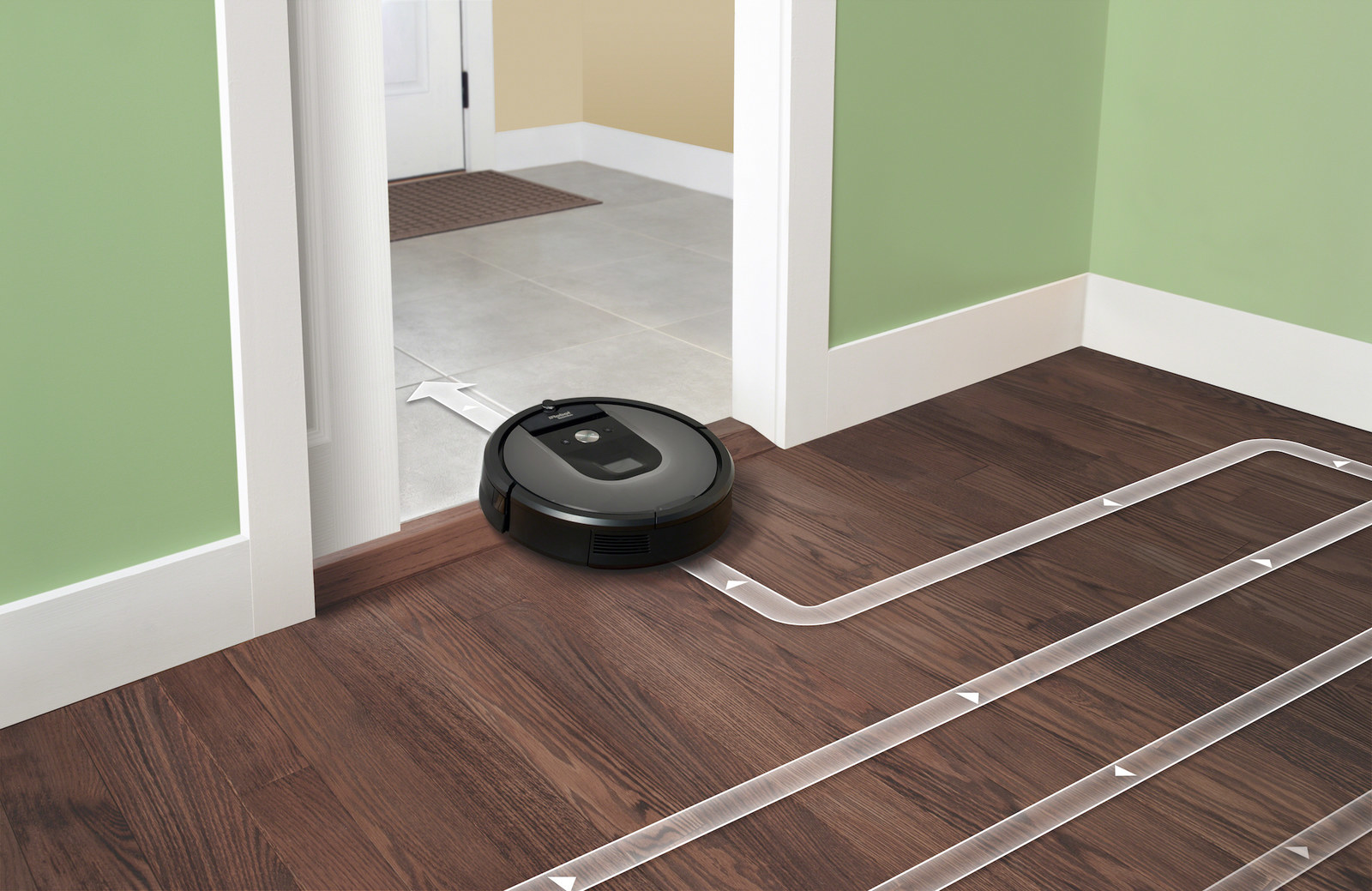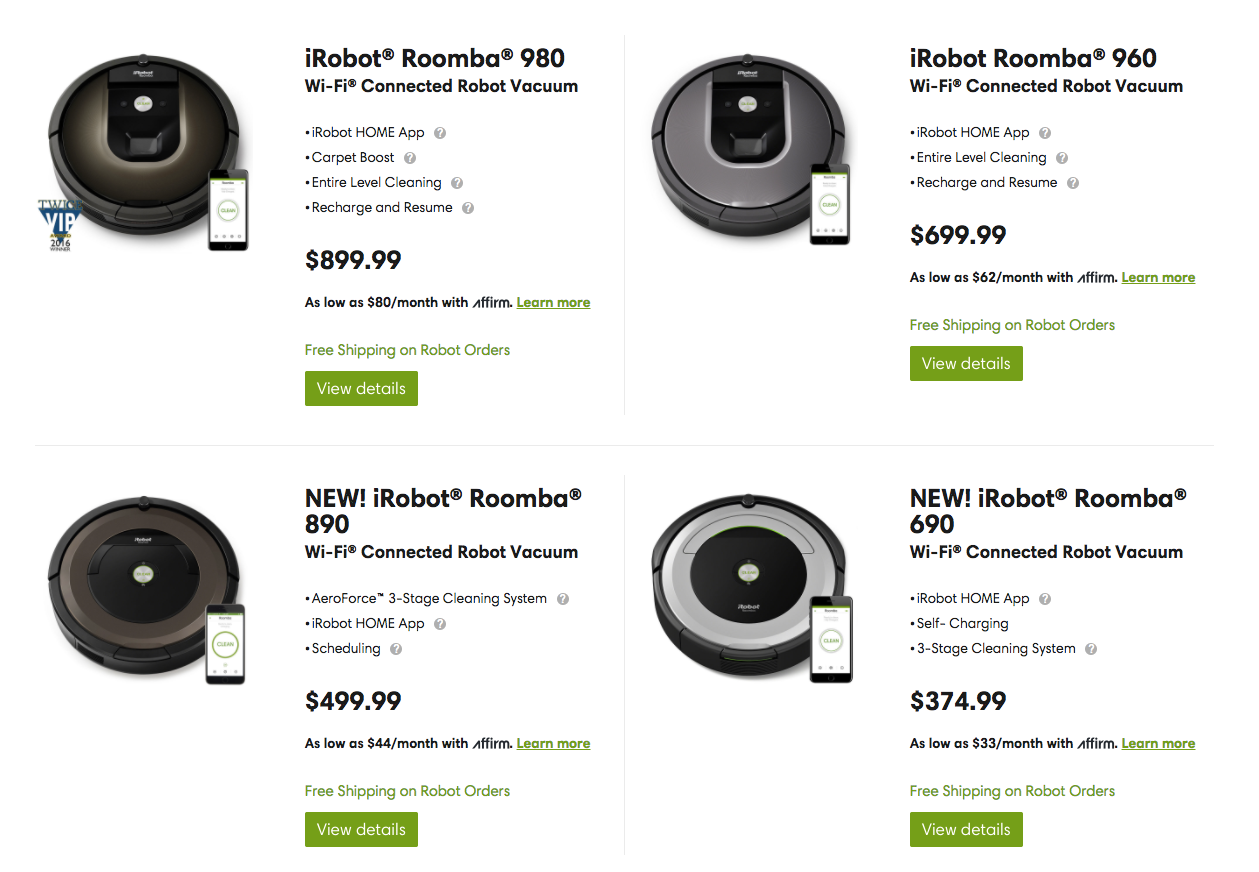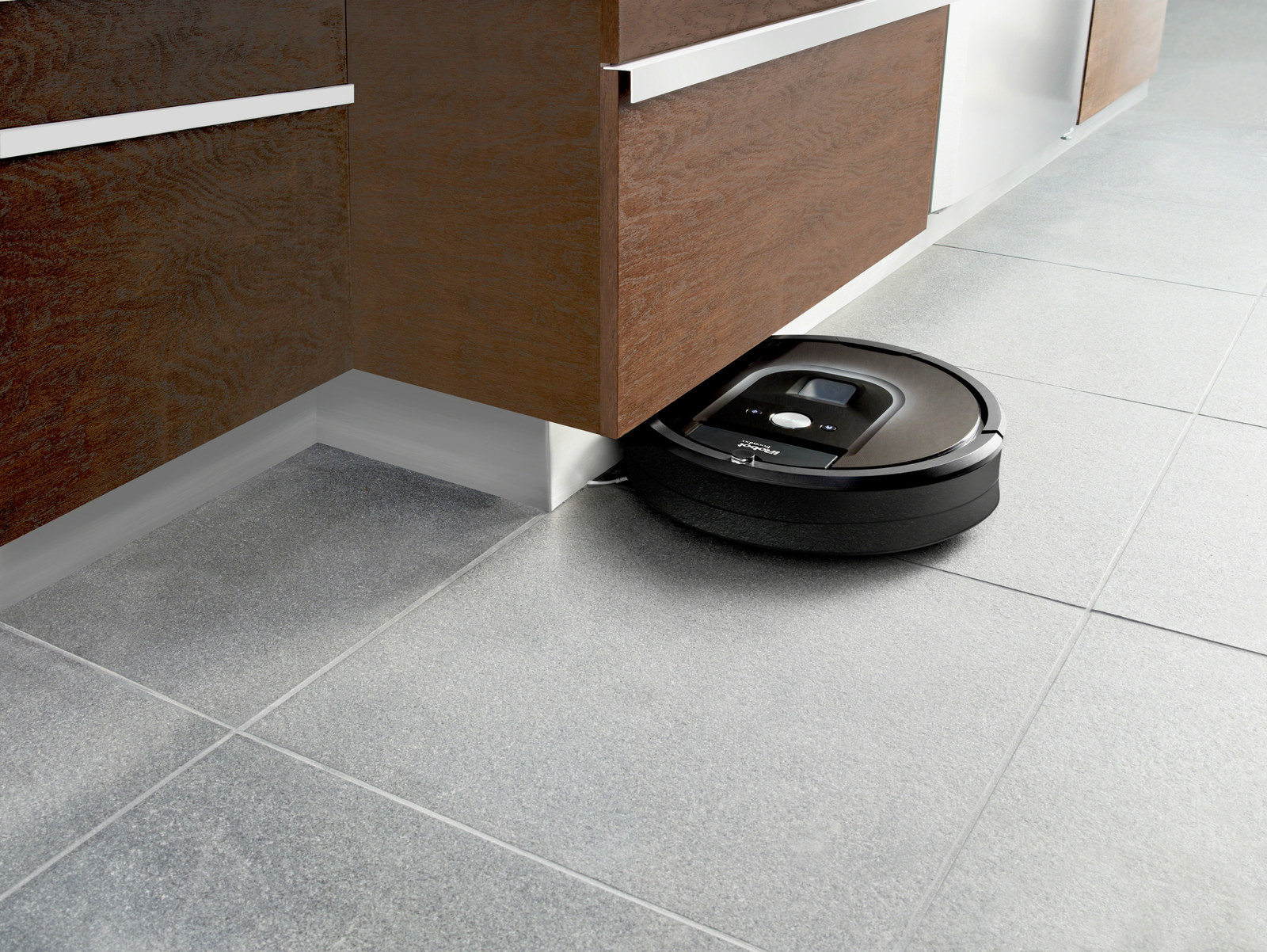Your cute little Roomba that zooms around doing the vacuuming for you has been making maps while it works... and someday, its maker may share your house's floor plan to other tech companies.
The CEO of iRobot, which makes the automatic vacuum, told Reuters that his company is considering giving the data Roombas have collected in customers' homes to companies like Google, Apple, and Amazon.
iRobot's actually been mapping your house since 2015, when it released the Roomba 980. That smart vacuum creates its own map of your house so it won't knock over your lamps. The technology, dubbed Simultaneous Localization and Mapping, allows the smart vacuum to smartly navigate your house, clean it, and return to its charging station autonomously.
And now iRobot has another idea for how to use that data. A lot has changed since iRobot started selling the first Roomba in 2002. The many internet-connected gadgets that make up a home smart have expanded to include lights, blinds, TVs, speakers, coffee pots, thermostats, toasters, security cameras, ovens, and more. Some of these devices could use a map of your house to be more effective, but none of them moves around your house collecting spatial data in the same way a Roomba does.
Reuters reports that iRobot is considering sharing this data with companies making smart speakers and other smart home technology, including Amazon, Google, and Apple. Roomba is already compatible with Amazon's voice assistant Alexa and its accompanying smart speaker Echo. You can use the Echo to tell the vacuum to start cleaning, stop cleaning, go home to its charging station, and more. But the Roomba doesn't tell Amazon what the layout of your house looks like, at least not for now.
iRobot's potential plans have some privacy advocates concerned. Jamie Williams, an attorney at the Electronic Frontier Foundation, told BuzzFeed News, "Maps of the inside of your home can tell a lot about a person. For instance, how you lay out your living room could disclose whether watching TV is a central part of your life. It could disclose whether you have pets. How often you rearrange furniture. This information wouldn't be worth a lot to advertisers if it didn't reveal highly sensitive information about the inside of the home."
If you think it's creepy that Roomba's been sending maps of your house to its maker, there's a way to cut the data sharing with iRobot — though it might disable a key feature of your robo-vac.

iRobot's privacy policy reads, "You can control or stop the collection of usage data from your registered iRobot device by disconnecting your Wi-Fi or Bluetooth from the app, for example, by changing your Wi-Fi password." However, this will disable your ability to use the Roomba with your smartphone or with Alexa, which requires a Wi-Fi connection. iRobot advertises Wi-Fi connectivity and remote control as one of Roomba's primary features.
In a statement, iRobot told BuzzFeed News it "is committed to the absolute privacy of our customer-related data, including data collected by our connected products. No data is sold to third-parties. No data will be shared with third-parties without the informed consent of our customers."
Williams told BuzzFeed News that while iRobot will need to get customers' permission, "this request for consent may appear as small print in some updated policy, which in our mind is not real consent, especially given the sensitivity of this information."

But you don't have complete control. iRobot may still retain anonymized data connected to your device.
The company's privacy policy also says, "We reserve the right to de-identify your personal data, including information about Robot and Service usage, and to retain your anonymized information for our own records."
iRobot does not specify in its privacy policy whether a map of a home would legally be considered personally identifiable information or anonymized user data. The company declined to comment on how it classifies the information.
"I hope we never get to a point where anyone things that constant tracking of behaviors inside the home is just a cost we pay for having a personal assistant or
making coffee via an Internet connected device," Williams said. "How consumers react to iRobot's plans to gather and sell maps of the inside of their homes is going to reveal how likely we are to get there."

UPDATE
In an interview with ZDNet, an iRobot spokesperson said that the Reuters story was a "misinterpretation" of the CEO's comments and that the company would "never sell customers' data," though it may share it with other smart home devices. Reuters also updated its story to reflect that iRobot does not plan to sell customer data. iRobot issued a statement following the interview:
"iRobot does not sell data customer data. Our customers always come first. We will never violate our customer’s trust by selling or misusing customer-related data, including data collected by our connected products. Right now, the data Roomba collects enables it to effectively clean the home and provides customers with information about cleaning performance. iRobot believes that in the future, this information could provide even more value for our customers by enabling the smart home and the devices within it to work better, but always with their explicit consent.”
